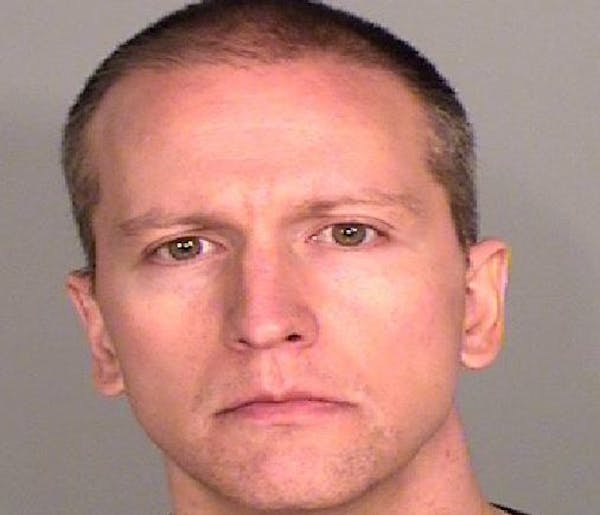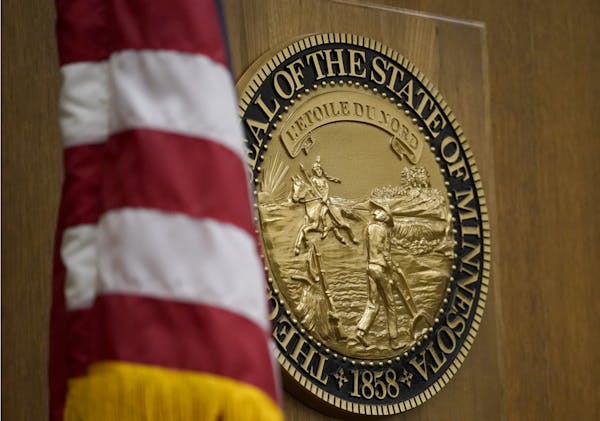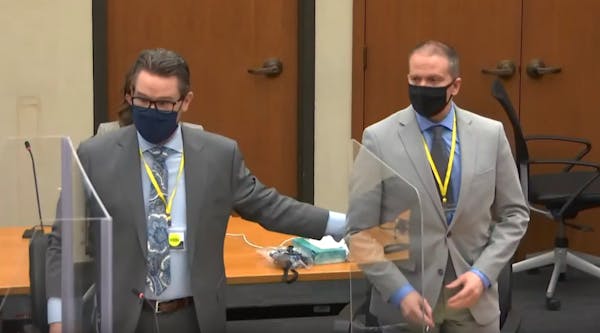Minneapolis and Hennepin County officials will spend at least $1 million to put up fences and other barricades across the city as they prepare for the first trial in George Floyd's death.
Minneapolis leaders estimate they will spend $645,000, most of which will be on fortifications for the city's five police precincts. The rest will go to protecting City Hall and the new Public Service Building, both of which face the downtown courthouse where former officer Derek Chauvin will be tried; jury selection begins Monday.
County officials said their initial cost for installing and leasing barriers around the Hennepin County Government Center, which includes the courthouse, is just over $420,000.
"We are still making some adjustments, so that number is subject to change," county spokeswoman Carolyn Marinan said.
The barricades and plans to bring in thousands of police officers and National Guard soldiers have drawn criticism from some City Council members and community groups, who say they fear the actions will further escalate tensions in a community that has already been traumatized. Others have welcomed the plans, saying they want city leaders to do everything they can to thwart a repeat of last year's riots, which lasted for days and resulted in damage to more than 1,500 buildings.
"Some in our communities may find some of the environmental structures that they see — barricades and barriers and fences — perhaps a little bit daunting," Minneapolis Police Chief Medaria Arradondo said at a news conference Thursday. "But, as we saw the events of Jan. 6, that is that preventative tool that we have to consider and have to look at."
Hennepin County is using money from its facility services budget to cover the costs. Minneapolis leaders hope they will eventually be able to use state aid to cover expenses, City Coordinator Mark Ruff said.
State aid isn't a given. Minnesota lawmakers are trying to break a stalemate over the creation of a new account that could reimburse agencies that provide mutual aid, including for the Chauvin trial. The latest public proposals would include $15 million to $35 million in funding. Senate GOP Leader Paul Gazelka said Thursday that he believed lawmakers were "fairly close" to a deal. "God willing, we will get it done on Monday," he said.
Ruff said city leaders are counting on state funding. "If that's not the case, it's like any other unexpected expenditure within the city," he said. "We work with the mayor and the council to come up with options to fill that budget hole."
Staff writer Briana Bierschbach contributed to this report.
Liz Navratil • 612-673-4994
Her son bought a fake pill via Snapchat. Fentanyl killed him. Now, this mom is on a mission.

St. Paul event organizers aim for spirit of Midwest Mountaineering expos
Rosemount-Apple Valley-Eagan school district selects new superintendent

8 Twin Cities area grocery stores, ranked by affordability



